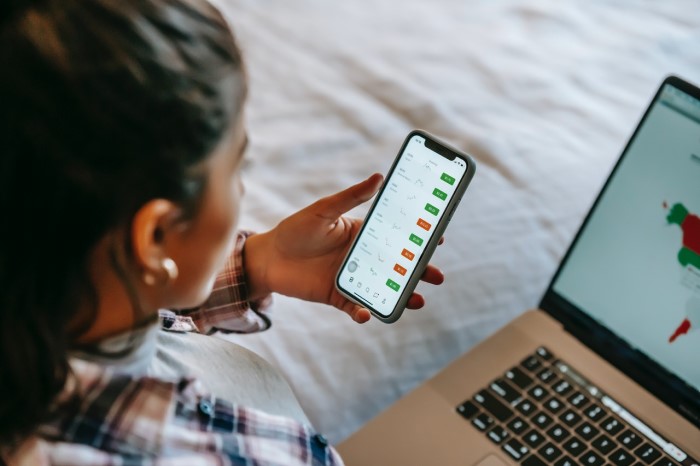Forex Trading Tips
How to Make Money in Forex Trading: Expert Tips and Strategies

Learn how to make money in forex trading with expert tips and strategies. Discover how to navigate the forex market, manage risks, and optimize your trading for profit.
Forex trading, also known as foreign exchange trading, offers the potential for individuals to earn money by trading currencies. While it can be a lucrative endeavor, it’s important to approach forex trading with the right knowledge and strategies. In this comprehensive guide, we’ll explore how to make money in forex trading, providing you with expert insights, tips, and practical advice to succeed in this dynamic market.
How to Make Money in Forex Trading
Navigating the forex market and making consistent profits requires a combination of skill, knowledge, and disciplined strategies. Here are key steps to help you achieve success:
Understanding the Basics
Before diving into forex trading, it’s crucial to understand the fundamentals. Study how currencies are paired, learn about major and minor pairs, and grasp the concept of exchange rates. This foundational knowledge will help you make informed decisions.
Choosing the Right Broker
Selecting a reputable and regulated forex broker is essential. Look for brokers with competitive spreads, a user-friendly trading platform, and excellent customer support. This choice greatly influences your trading experience.
Developing a Solid Trading Plan
A well-defined trading plan outlines your goals, risk tolerance, and trading strategies. Include entry and exit points, money management rules, and how you’ll handle different market scenarios. Stick to your plan to avoid emotional decisions.
Practicing on Demo Accounts
Before risking real capital, practice on demo accounts offered by brokers. This allows you to familiarize yourself with the trading platform, test your strategies, and gain confidence without financial risk.
Applying Technical and Fundamental Analysis
Successful forex traders use a combination of technical and fundamental analysis. Technical analysis involves studying price charts and patterns, while fundamental analysis considers economic indicators and news events. Integrating both approaches enhances your decision-making.
Managing Risks Effectively
Risk management is paramount in forex trading. Only invest a small portion of your capital in each trade, set stop-loss orders to limit potential losses, and avoid over-leveraging. Consistent risk management safeguards your account from significant drawdowns.
Being Patient and Disciplined
Forex trading requires patience and discipline. Avoid chasing quick profits and stay focused on executing your trading plan. Emotional trading often leads to losses, so maintain a calm and rational mindset.
Keeping Up with Market Trends
Stay informed about global economic events and news that can impact currency movements. Economic calendars and financial news sources help you anticipate market trends and make timely decisions.
Adapting to Changing Conditions
The forex market is dynamic, and conditions can change rapidly. Be prepared to adapt your strategies based on market trends, geopolitical events, and economic data releases.
Learning from Mistakes
Losses are a natural part of trading. Instead of dwelling on losses, analyze your mistakes and learn from them. Continuous learning and improvement are key to becoming a successful trader.
Expert Strategies for Profitable Forex Trading
Scalping: Quick Trades for Small Gains
Scalping involves making rapid trades to profit from small price movements. Traders executing scalping strategies closely monitor charts and enter and exit positions swiftly. While it requires intense focus, scalping can yield consistent gains over time.
Day Trading: Profiting within a Single Day
Day traders open and close positions within the same trading day. They capitalize on short-term price fluctuations and avoid holding positions overnight. Day trading demands strong analytical skills and a disciplined approach.
Swing Trading: Riding Price Swings
Swing traders aim to capture price swings over several days or weeks. This strategy involves holding positions overnight and requires a broader perspective of the market’s direction.
Carry Trade: Profiting from Interest Rate Differences
Carry trade involves borrowing funds in a currency with a low-interest rate and investing in a currency with a higher interest rate. Traders profit from the interest rate differential, and while it’s a longer-term strategy, it can lead to consistent gains.
Fundamental Trading: Capitalizing on News Events
Fundamental traders analyze economic indicators, central bank decisions, and geopolitical events to predict currency movements. By trading around news releases, they seek to profit from market volatility.
FAQs
Q: Can I start forex trading with a small amount of money?
A: Yes, many brokers offer mini or micro accounts that allow you to start trading with a small initial investment. However, ensure you practice effective risk management to protect your capital.
Q: Is forex trading risky?
A: Yes, forex trading involves significant risk due to the potential for rapid and substantial price fluctuations. Proper risk management and education are essential to mitigate these risks.
Q: How can I stay updated on market news?
A: Use economic calendars provided by forex news websites and broker platforms. These calendars list upcoming economic events, helping you stay informed about potential market-moving news.
Q: Can I trade forex part-time?
A: Yes, many traders engage in forex trading part-time while maintaining other commitments. However, ensure you have a solid trading plan and allocate sufficient time for analysis and decision-making.
Q: What is the role of leverage in forex trading?
A: Leverage allows traders to control larger positions with a smaller amount of capital. While it amplifies potential profits, it also increases the risk of losses. Use leverage cautiously and according to your risk tolerance.
Q: How do I manage my emotions while trading?
A: Emotions can impact trading decisions. Stick to your trading plan, practice mindfulness techniques, and take breaks if you’re feeling overwhelmed. Emotional discipline is key to successful trading.
Conclusion
Mastering how to make money in forex trading requires dedication, continuous learning, and the implementation of effective strategies. By understanding the market, managing risks, and adapting to changing conditions, you can navigate the forex world with confidence. Whether you’re a beginner or an experienced trader, the insights shared in this guide will help you on your journey to profitable forex trading.





